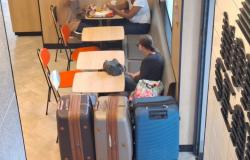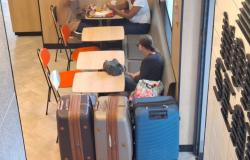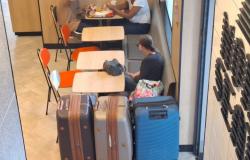State Secretariat for Family Agriculture (Seaf) supports around 250 thousand families of small farmers, quilombolas and extractive populations
With a focus on promoting sustainability and income generation, through the promotion of technical assistance and productive reforestation, the State Secretariat for Family Agriculture (Seaf) supports around 250 thousand families of small farmers, quilombolas and extractive populations, holders of 28 million hectares of forests.
Seaf was created in May 2023, and since then has worked, among other duties, to assist in the organization of these groups. A commitment made by the government of Pará. “Agroextractive cooperatives are increasingly investing in adding value. In the case of priprioca, the root of a species of plant native to the Amazon, a kilo of essential oil currently costs between R$ 5 and 6 thousand on the aromatic products market”, explains secretary Cássio Pereira, holder of the department.
“Developing the socio-biodiversity economy and adding value to the products of local communities is the best way to guarantee the forest alive and improve the quality of life of people who live in forest areas”, reinforces the manager.
Dilma Lopes is president of the Association of Rural Producers of Campo Limpo, located in Santo Antônio do Tauá, an organization assisted by Seaf, where a community factory extracting essential oils operates in partnership with Natura.
“For us, family farmers, the establishment of the factory was an opportunity to generate jobs for our young people, increase economic income in the community and support our sustainable production practices”, he highlights.
Lula and Macron
Seaf’s work is strategic for adding value to the sustainable economic model defended by the government of Pará. So much so, that during the visit to Belém, by presidents Lula and Emmanuel Macron, of France, on Tuesday (27), the governor Helder Barbalho invited the state secretary of the Secretariat of Family Agriculture, Cássio Pereira, and representatives of extractivist, quilombola and family farming cooperatives to deliver baskets with products from the Pará socio-bioeconomy to the delegation of authorities.
Lula and Macron were presented with chocolate from Cacau Way, a cooperative located in Transamazônica, in Pará, responsible for generating jobs and income for 40 family farming members. Among those present, there were also products derived from açaí and cassava, honey from native bees, Brazil nuts, andiroba, copaíba, cumaru, miriti crafts, buriti flour and aromatic oils.
Vanildo Quaresma, from the Abaetetuba Fruit Growers Cooperative, participated in the program with the heads of State. “I am hopeful about the initiative of Presidents Lula and Macron and Governor Helder in announcing more resources and their commitments to the preservation of the Amazon”, he stated.
For José Filho, president of the Mixed Agroextractive Cooperative of the Arioca-Pruanã extractive reserve, in Oeiras do Pará, in Marajó, the event was an important moment in being able to deliver his cooperative’s products to the authorities.
“It’s not enough to just combat climate change, it’s important that the people who live and produce in the forest improve their quality of life too”, highlighted the cooperative José Filho.
Tags: State develops agriculture bioeconomy preserves million hectares forest
--





